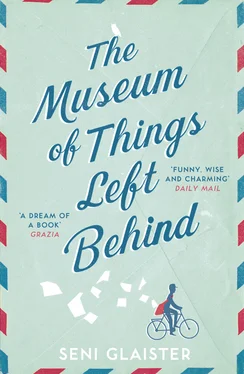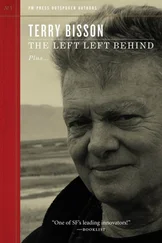While the statistics would almost certainly be excluded from the annual report issued by the minister for tourism, it is fair to guess that the majority of visitors to Vallerosa would have begun their unintentional visit with a glance at their watch, a quick but futile calculation of any number of time zones they might have crossed during their eastward journey, and a hurried exit from the train, tumbling to the platform alongside the mailbag, in the pre-dawn darkness. Internal panic rising, they would turn to see Vinsent Gabboni emerging from the shadows, smiling the knowing smile of a stationmaster who has seen it all before, many times.
Gabboni, so keen to protect that most coveted of positions, ensured that he did every aspect of his job with absolute diligence. And so, on the rare occasions when a visitor chose to stop at that crease of a country, he would draw himself up to his full five foot seven inches and guarantee that the visitor, American or otherwise, was treated with the unabridged Vallerosan welcome. Having allowed his visitor to alight, he would walk purposefully towards them to greet them. First he would place a friendly hand on each shoulder, and then, staring into the eyes of the often startled traveller, he would pronounce, syllable by syllable (always respectful of most foreigners’ lack of learning), ‘Your weary feet can find comfort here, your wandering soul can find answers, your heavy heart can find solace and your parched mouth can be quenched.’ Then, before the visitor had had time to recover, he would draw them firmly to his chest, laying his head briefly on their right shoulder. With a slap on the back, they would be ushered into the waiting room to meet him in his official capacity as junior minister in charge of Customs and Immigration. While the visitor would reorient himself in the small, tidy waiting room, wondering if, perhaps, he had been mistaken for somebody else, Gabboni’s head and shoulders would reappear alarmingly through the hitherto unnoticed hatch in the wall.
This very special morning, which had begun more than an hour before with the unruly clanging of the church bells, it had been decreed that Gabboni’s special welcome alone was not enough for the expected VIP.
There had been much debate, both in Il Gallo Giallo, and in Parliament itself, as to who, or what, would be most appropriate to form a welcoming party. At the peak of the debate, it had been suggested that Sergio himself might be there to greet the visitor but Angelo had spelled out the danger of allowing the visitor to think that too much significance had been attached to the occasion. In the end, it was felt by all that Sergio must retain a healthy detachment and act with the standoffish dignity of a leader who was accustomed to (perhaps even bored by) state visits. Eventually, through a rigorous process of elimination, three ministers had been duly elected to form the welcoming party.
Settimio Mosconi, the minister for tourism, was an obvious choice, and with the addition of the ministers for recreation and leisure, it was felt that just the right level of gravitas without obsequiousness had been attained.
It was agreed by all that Vinsent Gabboni had excelled himself. The station gleamed, while the scents of geranium and rose made all three ministers proud to be Vallerosan. Mosconi’s shoulders heaved and he was seen brushing the back of his hand across each eye, but whether this was because the moment was charged with emotion or because the air carried a little dust that dry morning was open to speculation. Gabboni had unrolled the red linoleum, reserved for just this type of occasion but which had only been called upon once before. On that occasion, Sergio had left the country for a week’s visit to his neighbouring countries but returned just two days later, apparently because his work had been accomplished with unrivalled efficiency; those closer to him wondered if he had been homesick.
With a full ten minutes to go before the scheduled arrival of the train, the three men took their place. Initially they ordered themselves tourism, recreation, leisure, but the gradually descending height differential added a comic dimension that was neither dignified nor intended and they quickly regrouped with tourism, the tallest, flanked on either side by recreation and leisure. On this solemn occasion, Gabboni had been relegated to the ticket office but he was proud and excited to be included and had, without either the knowledge or permission of Mosconi, agreed to head afterwards for Il Toro Rosso where he would hand an exclusive scoop to Edo Cannoni, a post-graduate English student who aspired to run the country’s only independent newspaper, the Vallerosan Reporter . As this newspaper was still an idle dream, young Edo was resigned – apparently indefinitely – to running the student newspaper and it would be to the thundering photocopying machine in the basement of the university that he would turn once his copy was filed.
The sound of the diesel engine cut through the clear morning air and could be heard for some minutes before it eventually slowed to a screeching halt at the small station. A few moments later, two heads poked out of the driver’s cabin door, which swung back fully on itself. A smallish sports bag, with a tennis racquet strapped to its spine, was thrown to the platform. This was soon followed by the unceremonious dumping of a large rucksack, which hit the ground heavily, raising a cloud of dust. Moments later, two tired visitors stepped down from the train and looked, first, at the line-up of smartly saluting men to their right, then to their left, where the end of the platform and the tracks curving into the distance offered no alternative exit route. The middle-aged man stepped forward, casually slinging his jacket over one shoulder and picking up the sports bag in his other hand.
The three ministers held their breath. There was, they admitted to themselves later, a degree of disappointment that this man, clearly a man in charge, had not thought to dress in official uniform and hadn’t even deigned to sport a necktie. But, of course, they quickly rationalized, for security reasons it must be safer to travel incognito and, with no security men to accompany him, this precaution was probably very wise.
They shared, too, their simultaneous reaction to the second visitor, previously partly shielded by the man. Lagging behind, having taken a few seconds to heave her heavy rucksack to her back, she hurried forward to catch up with her travelling companion, falling into step silently beside him. The three ministers, in unison, dropped their saluting hands to their sides and stared, unprofessionally, unabashed and unashamed, at the tallest and most beautiful woman they had ever set eyes on. Not even the sum of their combined dreams had yielded anything quite as mouth-wateringly, tear-jerkingly heavenly as the vision that now walked towards them. Perhaps the equestrian habits of their forebears were behind their unanimous thoughts as they sized up (with the open admiration of stockmen at market with a full purse to spend) her powerful legs, her wide but graceful shoulders, her magnificent neck and incredibly strong, shiny white teeth. The sun had not yet risen and still her pale hair glowed in a luminescent halo, as if illuminated from within. The few short seconds, as she strolled towards them, spiralled recklessly into cinematic-quality slow-motion as each man harboured unsolicited images, set to the music of harpsichords and tumultuous cymbals, of tumbling naked limbs, of the strong hindquarters of Arabian stud horses, of Amazonian hunters, of peach-skinned necks, of open mouths revealing rows and rows of pearlescent teeth, of whips and jodhpurs and the palest, smoothest, roundest buttocks.
The tall blonde woman approached the welcoming party, first with a little trepidation and then with confidence, as she realized that these three uniformed gentlemen, each resplendent with shiny ribbons and glinting medals, were there to meet her and her fellow traveller. She towered over the man beside her as her generous mouth spread into a wide smile and she stepped forward, her right hand held out. The male visitor shuffled forward, hand extended, with a puzzled smile. The two weary travellers were greeted with a moment’s confusion followed by three stiff salutes.
Читать дальше












